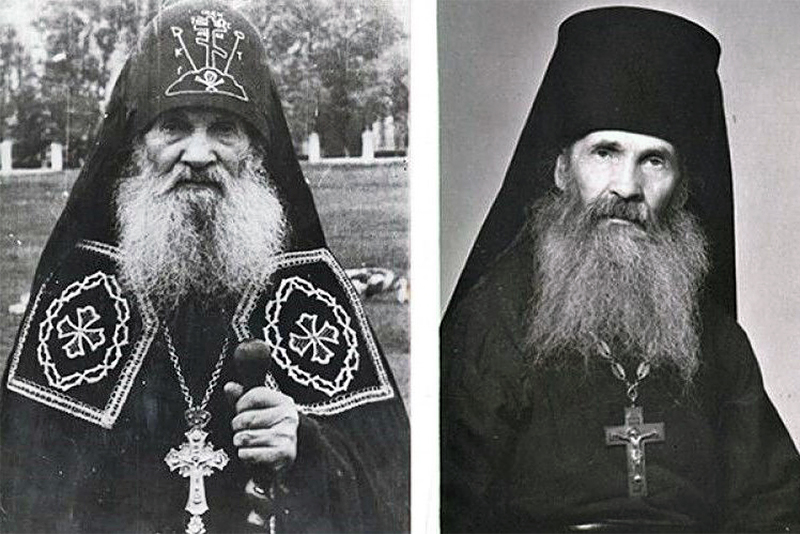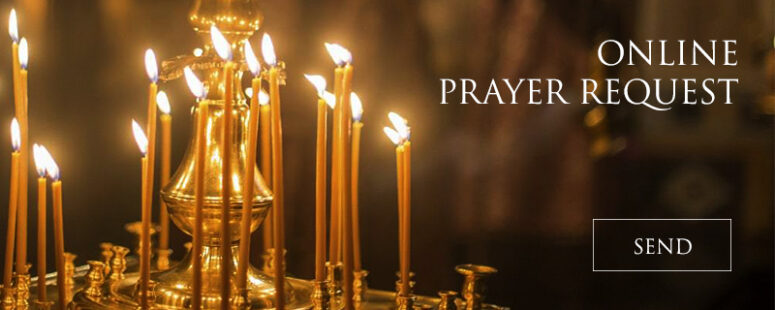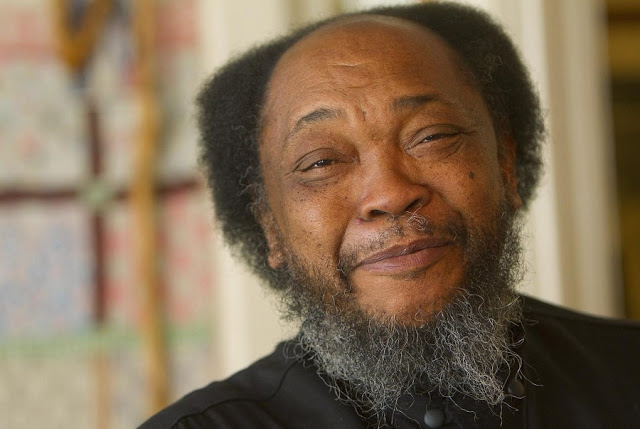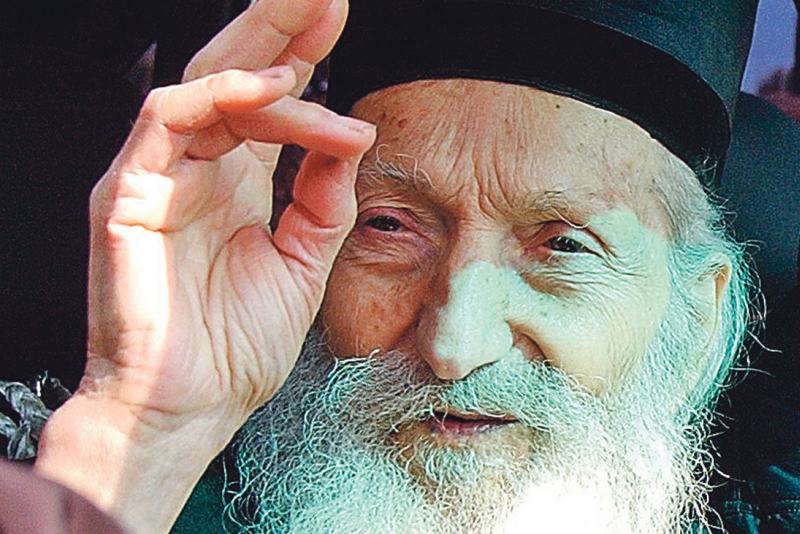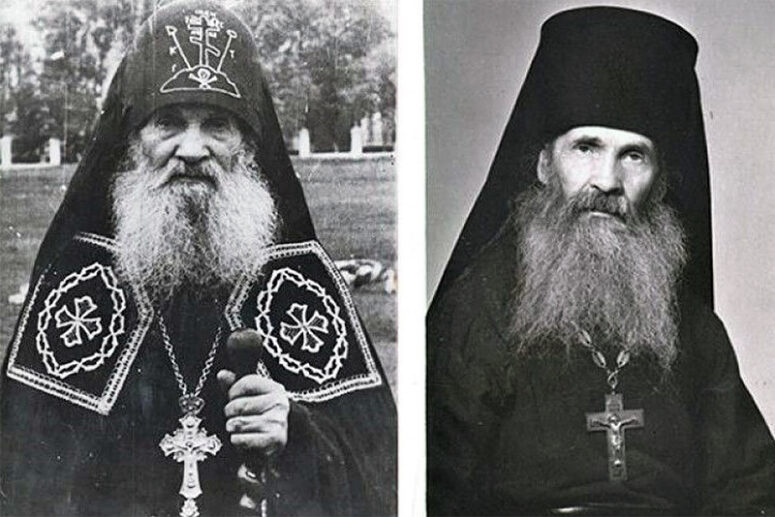
We continue our series about the prominent elders of the Russian Orthodox Church who illuminated with the light of their righteousness the dark Godless years of Soviet rule. One of these men, Father Gregory Davydov, described his fate and that of others like him with great humility: “The righteous ones received the crowns of martyrs, while we have suffered for our sins.” Yet, even as sufferers for their sins they grew in spirit and acquired the Grace of God by His Divine Providence. With this grace, they gathered around them multiple disciples from all over the country, like honey-filled flowers attract bees. Schema-Archimandrite Gregory (Davydov) was widely known as an elder in the Belgorod Region and was the spiritual father of Archimandrite Seraphim.
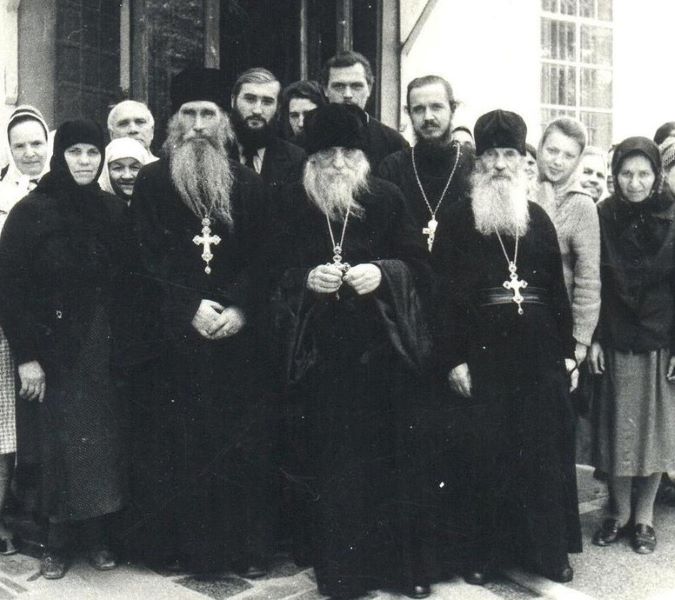
In the service of Christ from a young age
The childhood and adolescent years of Father Gennady (his name before his tonsure to the schema as Elder Gregory) is similar to the early lives of many other God’s beloved. He was born in 1911 to a rural family of devout Orthodox believers in the governorship of Oryol. He knew God already as a child and was accustomed to prayer, fasting and physical work. At five years of age, he learned to read and opened the Bible for the first time. After his first pilgrimage to Ploschanskaya Pustyn, which he completed with his parents, he resolved to devote himself to the service of God.
He received monastic tonsure at Ploschanskaya Pustyn at 16 years, an exceptionally young age for his time. By that age, he had already learned to sew, knit and cook, and showed an interest in all monastic jobs. “In this life, one must take on every job that comes their way: who knows what skills one might need in future,” said Father Gregory to his spiritual children. His versatile menial skills later helped him survive the harsh conditions of his exile.
When the persecution of the Church began, his monastery was closed, and its monks were dispersed, For three years after the closure, Father Gregory laboured in the world as a supply manager at a secondary school. As churches were closing down, he worked hard to protect their relics from destruction. Posing as a curious member of the public, he walked past the guards into the church, put out the holy vessels through a window in the altar, and carried the antimins outside under his shirt.
Eventually, he moved to Oryol, where he was ordained as hierodeacon and appointed to serve at a church. In the 1930s, The most difficult times of the Stalinist repressions began, but Father Gennady continued to serve until his capture and imprisonment. One night, the secret police came to search his room. They found a leaflet in his Sluzhebnik that he had himself put inside and detained him for further investigation. He spent almost a year in the prison cell. All this time, the infidels never stopped his attempts to defeat him and make him renounce his faith. They achieved little success and sent him to exile to Kolyma River in the Far East.
The prison camp
The journey to exile was a harsh trial in and of itself. He travelled under the deck of the same boat together with the political and criminal prisoners. About a half of them had hunger and dehydration before they even reached their destination. On arrival, they left the exiles out in the open without offering them any shelter or warm clothing. They survived by crowding around a fire in a hut of white towels built quickly by Father Gennady and covered with snow. Soon, they were assigned to different works. Father Gennady was given one of the most enduring jobs. He had to fell trees, and the production norms were very high. But Father Gennady was resourceful, and he helped himself and others in multiple ways.
Because of his kidney condition and other ailments, he often spent time in the prison hospital. Being at the hospital was the best time of his imprisonment. He could pray and read the Holy Scripture* that he had acquired by a miracle. When the chief doctor of the hospital knew that he could sew, he made Father Gregory his assistant. His new role put him in a position to help the other prisoners with food and fake medical certificates for hospitalisation.
Afterwards, the director of the goldmine took him as his personal assistant and asked him to look after his children and do housework. Father Gregory earned his respect. He even got his permission to hold religious offices in an earth house together with the other priests. The goldmine director later helped Father Gennady with his release.
First years as an elder
After eleven years in exile, he finally returned to his homeland. At first, he served as a choir singer and reader at different rural churches. Yet many people were attracted by his wisdom and simplicity, some of them academics and bishops.
He departed to Odessa in 1953, where he received ordination as a hieromonk and served at several churches. Finally, in 1957, he became a parish priest in Belgorod Oblast, where he remained for the rest of his life. He took charge of the half-destroyed Pokrovsky Church at the site of the tank battle of Kursk, one of the bloodiest during World War 2. He rebuilt it with his assistant, subdeacon Fedor. He was promoted to the rank of Hegumen in 1962 in recognition of his service as a spiritual guardian and confessor for the clergy of his diocese.
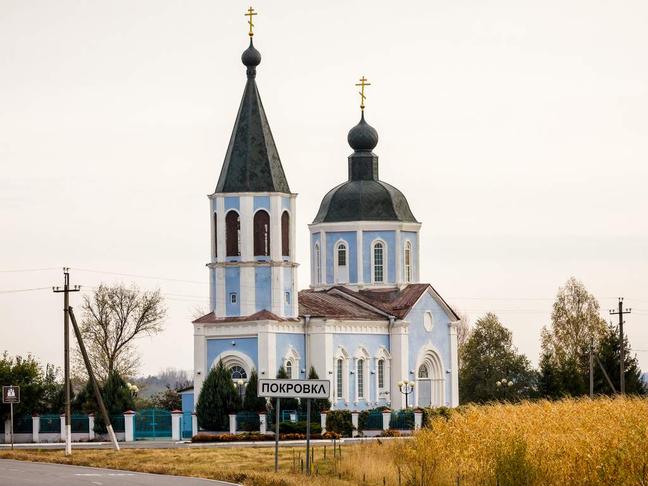
A shepherd and confessor
He had an extraordinary talent as a communicator and speaker. He spoke with people simply and responded wisely and with humour to bring to his listener the gist of his message.
To people going to a confession he gave this advice: “What are the sins that we do not have? Only those that do not exist. But which sins will the Lord not forgive? The unrepented ones.” By the gift of the Holy Spirit, he could read the heart of every penitent, the details of his life and the sins committed. When he encountered a formal confession with no genuine repentance, he answered the penitent’s “forgive me, father” in this way: “The Lord will forgive… and will give you a piece of His mind.” He also taught his flock: “A man or woman who will not put their sins behind them, despite repenting of them, is like a sea that is fed by numerous rivers but still has its water salty and unsuitable for drinking.”
He helped many of his children make important personal choices and settle their family lives. Some he advised on the suitability of their choice of marriage partner; others he directed on the path of monasticism and later tested their resolve. To comfort those with families, he would say, “Beads will not bring you salvation, but no wife will ever block you from heaven.”
As an admonishment to the helpers at church, he would remark: “It is a grave sin to steal from the church. Anyone who steals as much as a nail will answer for it at the Last Judgement. Conversely, even the smallest good thing done for the church — like washing the church floor — will be rewarded. The people who receive payment for their work are hired workers, and woe be on those who do their work negligently”.
Finally, the elder repeated on every occasion that nothing in one’s life will make sense unless we engage in good works and love our neighbour. Even regular church attendance will not bring us any closer to salvation unless we observe the Lord’s commandments. “Like a mother who answers every call of their child, we should hurry to do alms for the needy at their first request.”
Gifts of the Holy Spirit
Father Gennady had the gift of reading the lives of other people. People once asked him if they should proceed with a memorial service for a priest who was said to have committed suicide. In the morning, Father Gennady told them to commemorate the priest as murdered. Later, it was revealed that he had indeed been strangled. On another occasion, he was asked why a certain man had died young. To this, the elder replied, “That means that he had made life difficult for many people.” Soon, it was disclosed that the deceased had indeed been a nuisance for many. To one military officer, he predicted a safe return home from his service in Afghanistan.
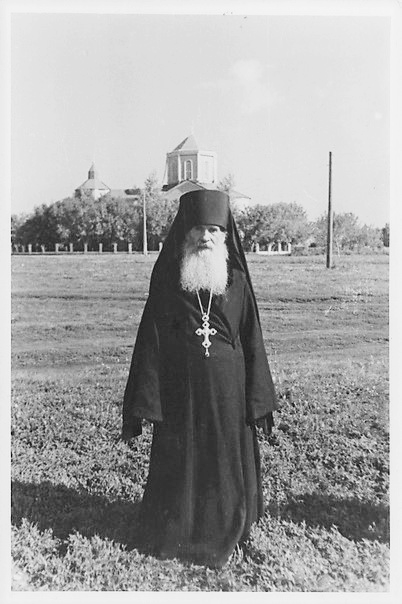
Regarding illnesses, the elder believed that God allowed our pains and other sorrows to bring us to repentance and call on Him for help. Father Gennady blessed the ill to go to the doctor but asked them to confess, take extreme unction and communion, and serve a Moleben. He also prayed secretly for the healing of his spiritual children.
Daily life
As Archimandrite, he always conducted church services smoothly and piously. He liked order and cleanliness and watched over the proper upkeep of the church. When he noticed dust, he swept his finger on it and remarked, “Oh, holy dust!”
His meals were always orderly, like a formal reception. He always drew a cross with his spoon on the bottom of his plate before eating. Often, he would remark as he tasted a course, “God bless the person who made it.” At other times, he would sip from his cup of tea and ask to call the person who brewed it. “Did you say the prayer before making it,” he would ask. “Forgive me, father.”
“Take it away. It is impossible to drink.”
But generally, Father Gennady always appreciated and acknowledged the work of anyone who served him in the smallest ways. Someone had knit him a pair of slippers. They were too small for his feet, yet he wore them for several hours out of respect for the giver.
Departure to God
After his prison camp in the harsh climate of the River Kolyma, he acquired numerous chronic conditions, and with age, he became frail and had to use a walking stick. Hearing the chime of the clock, he crossed himself and said, “That brings me one more hour closer to death.” Yet no illnesses could depress his spirit or make him stop his service or lose his sense of humour.
Two years before his departure he took tonsure into the schema with the name Gregory. He surrendered his should to the Lord on 19 July 1987. That night, one of his close spiritual children saw in his dream the fall of an oak tree and a large number of new offshoots growing from underneath its roots. In his lifetime, he showed the way of the truth to many people and left multiple disciples among the laity and clergy. He was buried, as he had asked in his last wish, before the altar of his parish church.
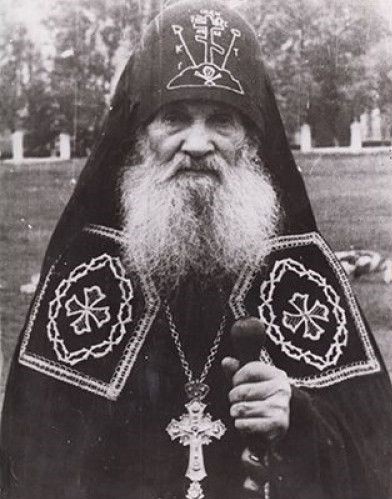
We conclude this narrative with this quote from Father Gregory’s teachings: “Salvation is possible only at church. Someone who jumps on the last bus just before the door closes, may not be in for a comfortable ride. Other people may be pushing him from all sides, but he is on his wife. Likewise, a man or woman at church will have their temptations but will overcome them all with God’s help.”
*The elder’s life mentions the Bible, but possibly it was only a Gospel, which is smaller and easier to hide during searches.

